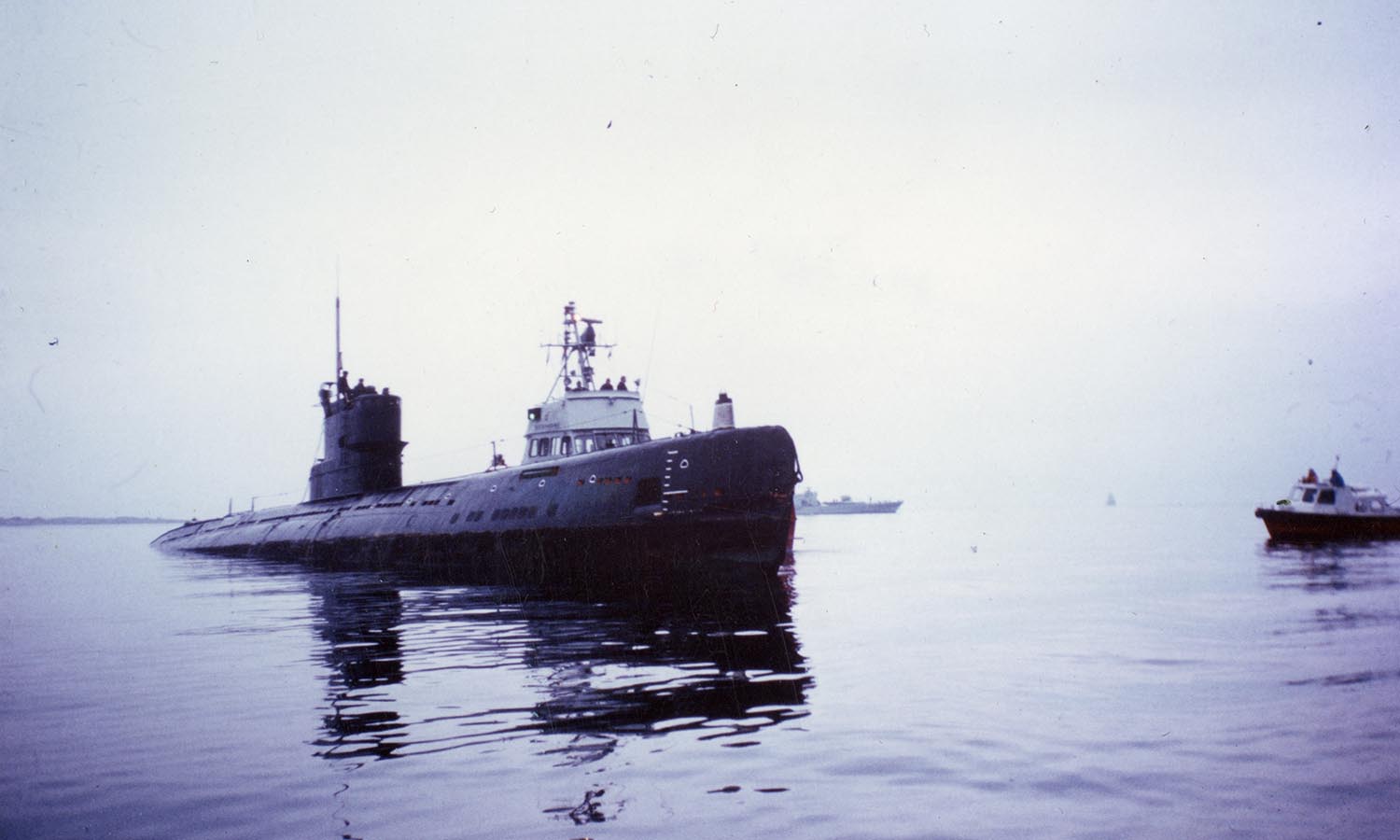Could Sweden use salt to catch lurking submarines?
In Sweden we have a recurring problem with foreign submarines messing about in our territorial waters. These unwanted visits to our archipelago are a nuisance, and not being able to catch whoever is responsible is not good for Sweden's self image. Once we actually got the perpetrator. A Soviet submarine went aground in a protected military area after some "accidental incorrect navigation". But most of the time we do not have a clue who is visiting. There are just indications that someone is lurking at the bottom in one of our many bays and straits. As I understand some submarines just sit still at the bottom if they suspect they are being monitored instead of fleeing, as fleeing would make noises that could give away their exact location. It seems to be a successful strategy since we cannot find them.
I read an article in a Swedish newspaper saying that the giant Dimitrij Donskoj submarine was about to sail into the Baltic Sea to participate in some sort of celebration. What caught my attention was that it could not go submerged or it would sink. The water in the Baltic sea was not salty enough. So apparently submarine buoyancy is a very delicate matter. At least for some of them. This got me thinking. Could pouring salt into the water make a submarine float like a cork?
I can understand the delicate situations that can occur in peace time. One cannot just start dropping depth charges among sailboats and tourists on jet skis just because there might be a submarine lurking under the surface. Pouring salt into the water might be less controversial.
I don't know enough about chemistry, physics or submarines to know if this could work. Some would argue that if it did work it would probably be put into military use somewhere already. But who knows, maybe experts overlooked this one? Like when the US president's super limousine, equipped to handle almost any dangerous situation, got stuck on a regular speed bump.
Is there someone out there that could help me with some calculations? Even if it would require a ridiculous amount of salt, it would still be interesting to see the calculations. And while calculating that, there are some related questions as well. Could the opposite work? Pouring some salt binding chemicals in the water would make submarines or other vessels sink or go aground? Could one use salt to tip boats over like the famous Swedish ship Vasa? Vasa tipped over on its maiden voyage due to top heavy cannons and not enough ballast. Please get back to me and I will update this article. See the project plan for details.
 Image credit: Alexey M., CC BY-SA 4.0
Image credit: Alexey M., CC BY-SA 4.0
The ship Vasa at the Vasa museum in Stockholm. Vasa sank in 1628 and was salvaged in 1961.
